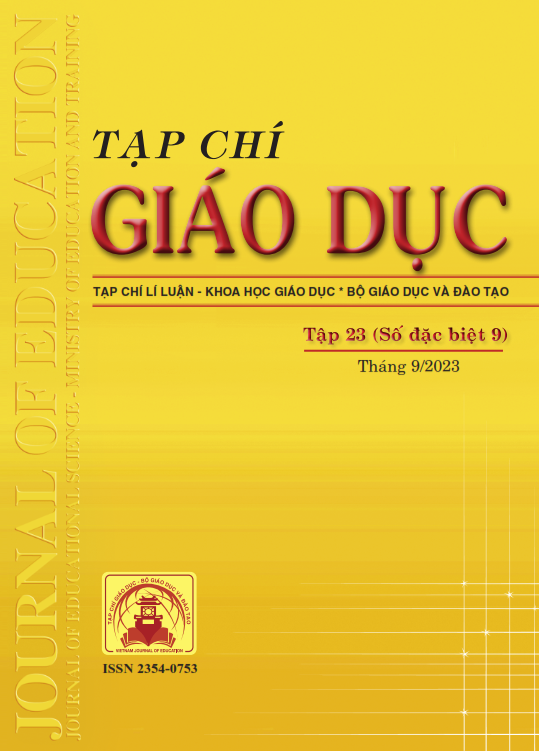Quan điểm của Trần Trọng Kim về cơ sở và phương pháp học tập, rèn luyện đạo đức của trẻ em qua tác phẩm “Sơ học luân lí” (1919)
Tóm tắt
Trần Trọng Kim was one of the most important figures in pre-modern Vietnam’s history. He was one of the representatives of the second generation of the intellectual in Vietnam. This was the generation of a historical transformation, when the Confucian educational system remained its popularity and the French colonialist established a new system of education. Trần Trọng Kim had all of the characteristics of a figure belonging to the era which was having a novel spirit but retained traditional way of thinking. In this paper, we present Trần Trọng Kim’s idea on the foundation and method of study and practice ethics for children in one of his famous works “Sơ học luân lí” (1919). Based on Western philosophy, Trần Trọng Kim argued for the existence of morality when he explained that with the fact that each individual is a cause-and-mean for developing of society. Therefore, the emergence of ethics is served as a solution to the norms of each individual for enhancing the organization of society. Trần Trọng Kim pointed out that the method of applying morality for children is the unity of “study” and “practice”, “teacher” and “student”.
Tài liệu tham khảo
Nguyễn Lương Hải Khôi (2023). Early Republicans’ Concept of the Nation: Trần Trọng Kim and Việt Nam sử lược. In Tran, N.A., & Vu, T., Building a Republican Nation in Vietnam, 1920-1963 (pp. 43-60). Honolulu: University of Hawaii Press.
Trần Trọng Kim (1950). Sơ học luân lí. NXB Tân Việt.
Trần Trọng Kim (2020). Sơ học luân lí. NXB Hồng Đức.
Đinh Xuân Lâm (1999). Từ điển nhân vật lịch sử Việt Nam. NXB Giáo dục.
Liaropoulos, A. (2020). A Social Contract for Cyberspace. Journal of Information Warfare, 19(2), 1-11.
Trịnh Văn Thảo (2020). Ba thế hệ tri thức người Việt. NXB Tri thức.
Vũ Ngọc Phan (1994). Nhà văn hiện đại. NXB Văn học.
Đã Xuất bản
Cách trích dẫn
Số
Chuyên mục
Giấy phép

Tác phẩm này được cấp phép theo Ghi nhận tác giả của Creative Commons Giấy phép quốc tế 4.0 .












